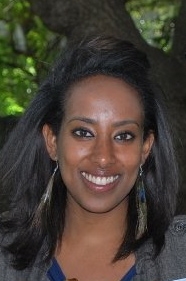
By Andrew Cohen
In the wake of January’s devastating earthquake that killed more than 200,000 people in Haiti, several Berkeley Law students have taken action.
Laura Weitzman ’10 and Tetyana Gaponenko ’10 spent spring break in Miami helping Haitian nationals apply for Temporary Protected Status (TPS). “We’d planned a road trip together to Southern California,” Weitzman says. “But when a classmate emailed us to gauge our potential interest in helping TPS applicants, the plan changed.”
While researching how to assist Florida lawyers in their TPS work, Weitzman found a news article about an alternative spring break program that the University of Miami Health and Elder Law Center was organizing for U.S. law students. She then called more than 20 hotels about donating a room—until the Hyatt Regency agreed. “That inspired us to look for the remaining support we needed to go,” says Weitzman, who drafted a proposal and met with Dean of Students Annik Hirshen. “Berkeley Law’s generosity was a big part of why we were able to do this.”
Both students brought significant immigration experience to Miami. Weitzman had assisted undocumented immigrants and temporary guest workers before and during law school, while Gaponenko had worked at Berkeley Law’s East Bay Community Law Center Immigration Clinic and the California Asylum Representation Clinic.
After an initial training session, they teamed with both Miami and visiting law students to conduct outreach programs in the city’s Little Haiti section, host client intakes, and push forward TPS and employment authorization applications. They volunteered during the last week of the month-long initiative, which recently won the Clinical Legal Education Association Award for Excellence in a Public Interest Case or Project. “Every day was full of surprises, challenges, and lots of gratifying moments,” says Gaponenko.
Whether they are undocumented or have temporary legal status, Haitian nationals residing in the U.S. before the earthquake—with few exceptions—are eligible for TPS. Weitzman says the 70,000 living in South Florida often face racial profiling and other forms of severe discrimination, and that TPS provides a chance to “remain in the U.S. to live, work, and participate in their local communities more securely, and to send money home to support their families and communities in Haiti.”
Foreign nationals granted TPS receive protection from being deported or removed from the U.S., authorization to work and the ability to obtain a work permit, the opportunity to obtain a Social Security number and apply for a driver’s license, and permission to travel outside the U.S. with advance permission from the U.S. Bureau of Citizenship and Immigration Services.
One applicant, a businessman who often traveled between Haiti and the U.S., arrived in Miami six days before the earthquake—which destroyed his house and killed his mother inside it. “He had nothing to go back to,” says Weitzman, “and because of TPS he didn’t have to return.”
Soon after the earthquake, Rahwa Gebretnsaie ’10 contacted the La Raza Law Students Association about assisting victims in Haiti, which led to a downtown Berkeley event that raised more than $530 for Partners in Health.
A couple weeks later, she teamed with classmate Karen Gal-Or ’10 to coordinate a panel event on U.S. immigration policies toward Haiti. About 50 students attended the panel, which included Lecturer in Residence Kate Jastram ’86 and prominent immigration lawyer Gerald Wong. A video of the event, co-sponsored by several student organizations, is available here. I then asked her to cook her famous soul food, and Karen contacted and obtained co-sponsorship from a number of student organizations, including:
Gal-Or and Gebretnsaie also organized a barbeque fundraiser—first triggered by former Berkeley Law bookstore manager Joyce Hall calling to see if she could support any student initiatives to help Haiti’s earthquake victims. Gebretnsaie asked Hall to cook her famous soul food, Gal-Or obtained co-sponsorship from several student organizations, and the event raised $1,250. Pictures are available here.
Gebretnsaie’s parents immigrated from war-torn Eritrea, and Ga-Lor’s parents from Israel. “Immigration issues hit close to home for us,” says Gebretnsaie, who has worked as a translator for Eritrean refugees seeking asylum. “We wanted to raise money to help the situation in Haiti, but also to contribute something more sustainable by putting the policy issues on people’s long-term radar.”
Toward that end, a panelist from the immigration panel she and Gal-Or put together has formed a committee, Lawyers Alliance for Haiti, to provide legal services, immigration assistance, and help filing TPS applications.
This fall, Gal-Or will clerk at the U.S. Third Circuit Court of Appeals in Pittsburgh while Gebretnsaie joins the U.S. Department of State’s Bilateral Trade Affairs division in Washington. “Over time I hope to work on economic development and alleviating poverty through banking, job creation, and social enterprise,” Gebretnsaie says. “Law plays a key role in all these areas.”